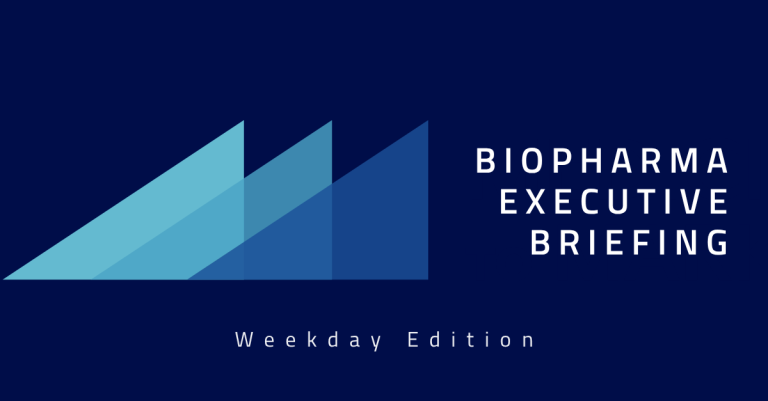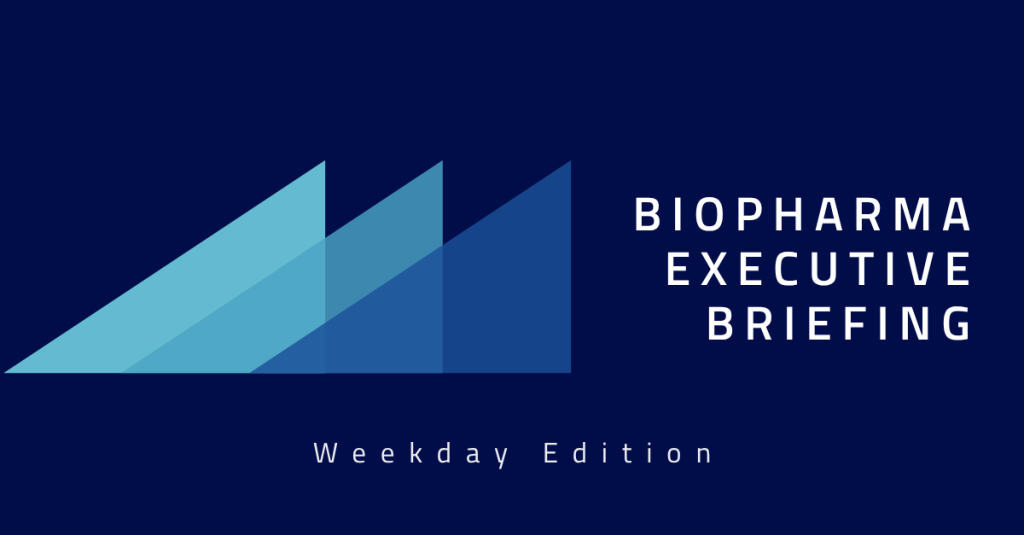Lundbeck’s surprise $2.4B counterbid rejected as Avadel board deems Alkermes’ CVR terms superior despite lower headline value
Alkermes plc emerged victorious from a high-stakes bidding war for Avadel Pharmaceuticals on November 19, 2025, after increasing its acquisition offer to up to $22.50 per share—a deal valued at approximately $2.37 billion that beat out a rival proposal from Denmark’s H. Lundbeck A/S despite carrying a lower headline price. The dramatic contest, which unfolded in a matter of days, underscores the fierce competition for assets in the sleep medicine market and highlights how contingent value right (CVR) structures can determine M&A outcomes.
Original Deal Disrupted by Lundbeck’s Unsolicited Counteroffer
Alkermes first announced its intention to acquire Avadel on October 22, 2025, offering $18.50 per share in cash plus a $1.50 contingent value right, totaling up to $20 per share and representing a 38% premium to Avadel’s weighted average trading price over the prior three months. The original $2.1 billion deal positioned Alkermes to expand into the sleep medicine market through Avadel’s sole commercial product, Lumryz (sodium oxybate).
The transaction appeared on track for a first quarter 2026 closing when Lundbeck disrupted the process on November 13, 2025, with an unsolicited proposal valued at up to $23 per share. Lundbeck’s offer consisted of $21 in cash plus a non-transferable CVR worth up to $2.00, split into two milestone payments tied to Lumryz sales performance.
Under the Lundbeck CVR terms, Avadel shareholders would receive $1.00 if combined annual U.S. net sales of Lumryz and valiloxybate (another Avadel asset) reached $450 million by December 31, 2027, plus an additional $1.00 if sales hit $700 million by December 31, 2030.
Avadel Board Initially Deemed Lundbeck Proposal “Superior”
On November 17, 2025, Avadel’s board of directors formally determined that Lundbeck’s unsolicited proposal constituted a “Company Superior Proposal” under the terms of the existing Alkermes transaction agreement. This determination triggered a five-business-day window during which Alkermes could negotiate in good faith with Avadel to amend its proposal.
The board’s conclusion reflected standard Delaware law and Irish corporate governance principles governing change-of-control transactions, where directors have fiduciary duties to pursue the best available value for shareholders. Lundbeck’s $23 per share headline offer represented a 15% premium over Alkermes’ original $20 per share bid.
Wall Street analysts immediately began assessing whether Alkermes would—and should—increase its offer. RBC Capital Markets analyst Leonid Timashev wrote that Lundbeck’s pitch “raises meaningful risks” to Alkermes’ bid. Evercore ISI analyst Umer Raffat estimated that after factoring in respective cash reserves, debt, and baseline earnings, Alkermes had lower “internal deal capacity” at $2.7 billion versus Lundbeck’s $3.8 billion.
However, Raffat questioned whether Alkermes should even attempt to outbid Lundbeck, noting that Lumryz is similar to Xyrem, a sleep medication that used to generate well over $1 billion in annual sales before generic competition emerged. The key issue, Raffat argued, was “whether Xyrem generics will exert pressure on Avadel”.
Alkermes Counters with Increased Offer Featuring Superior CVR Terms
On November 18, 2025, Alkermes submitted revised terms to Avadel consisting of $21.00 in cash per share plus one CVR entitling holders to a potential additional $1.50 payment, contingent upon final FDA approval of Lumryz for the treatment of idiopathic hypersomnia in adults by the end of 2028.
While Alkermes’ increased offer of up to $22.50 per share appeared lower than Lundbeck’s $23 per share proposal, Avadel’s board determined the Alkermes CVR carried superior terms. Specifically, the board concluded that “while the upfront cash consideration of $21.00 per Company Share in Alkermes’ Increased Offer is identical to the cash consideration proposed in the Lundbeck Proposal, the terms of the CVR in Alkermes’ Increased Offer are superior to the terms of the CVR included in the Lundbeck Proposal, which was determined to be unlikely to be achieved”.
The key difference lay in milestone achievability. Alkermes’ CVR was tied to a binary regulatory outcome—FDA approval of a specific indication for which Avadel is already conducting the pivotal Phase III REVITALYZ study, expected to complete by the end of 2025. By contrast, Lundbeck’s CVR required Lumryz to achieve ambitious sales thresholds of $450 million and $700 million by 2027 and 2030, respectively—targets the Avadel board evidently viewed as less probable.
Strategic Rationale: Accelerating Sleep Market Expansion
For Alkermes, the Avadel acquisition “represents a pivotal step in Alkermes’ strategic evolution,” according to CEO Richard Pops, noting that the move will accelerate the company’s expansion into the sleep medicine market. Ireland-based Alkermes is developing its own narcolepsy drug, alixorexton, currently in late-stage development.
Lumryz was approved by the FDA in 2023 to treat excessive daytime sleepiness and cataplexy in adults with narcolepsy. The once-at-bedtime extended-release oxybate formulation addresses a key patient convenience issue compared to twice-nightly dosing required by previous formulations. As of June 30, 2025, approximately 3,100 U.S. patients were receiving Lumryz treatment, with the companies projecting $265 million to $275 million in net revenues for 2025.
Avadel is also positioning Lumryz for expansion into idiopathic hypersomnia through the ongoing REVITALYZ study. The FDA has granted orphan drug designation for this indication. If approved, idiopathic hypersomnia would significantly expand the addressable market and justify the CVR milestone that Alkermes negotiated.
“The Company believes Alkermes has the capacity to maximize the value of the Company’s current portfolio and accelerate the ability for LUMRYZ™ to reach more patients globally with increased global commercial scale as well as enhanced R&D and technology capabilities to rapidly advance the pipeline to develop more therapies for patients who are underserved,” Avadel stated in its announcement.
Lundbeck’s Motivations and Strategic Disadvantages
For Lundbeck, the Avadel pursuit reflected urgent need to offset looming generic erosion. Jefferies analysts noted in a research report that generic competition will put roughly 60% of Lundbeck’s revenue at risk between now and 2030, triggering a downgrade of Lundbeck stock to “underperform”.
Jefferies estimated that annual sales of Lumryz could peak north of $550 million, potentially higher if the drug secures approval for idiopathic hypersomnia—described as a “blockbuster opportunity”. Yet analyst Lucy Codrington expressed concern that “a bidding war does not help our worry over risk of overpaying”.
Codrington also noted that Lundbeck executives had previously indicated they didn’t have near-term plans to pursue an acquisition similar in scope to the $2.6 billion buyout of Longboard Pharmaceuticals completed in late 2024. The size of the Avadel offer was therefore “a surprise”.
Ultimately, Lundbeck’s disadvantage appears to have stemmed from the structure of its CVR rather than insufficient financial capacity. The Danish pharma giant has substantial resources and strategic need, but Avadel’s board concluded the sales-based milestones posed excessive risk of non-payment.
Financial Terms and Transaction Structure
Under the final Alkermes offer, Avadel shareholders will receive $21.00 in cash per share at closing plus one non-transferable CVR. Assuming the milestone payment is achieved, the transaction values Avadel at up to approximately $2.37 billion on a fully diluted basis.
The CVR entitles holders to an additional $1.50 per share payment contingent upon final FDA approval of Lumryz for treatment of idiopathic hypersomnia in adults by 11:59 p.m. U.S. Eastern Time on December 31, 2028. There is no certainty the milestone will occur or occur within the specified timeframe, and if not achieved, the CVR amount will be zero.
The transaction will be implemented through a High Court of Ireland sanctioned scheme of arrangement under Chapter 1 of Part 9 of the Companies Act 2014, requiring approval from Avadel shareholders and Irish regulatory authorities. Alkermes reserves the right to implement the acquisition via a takeover offer as an alternative to the scheme, subject to applicable rules and consent.
J.P. Morgan is acting as exclusive financial advisor to Alkermes, with Paul, Weiss, Rifkind, Wharton & Garrison LLP and McCann FitzGerald LLP serving as legal counsel. Morgan Stanley and Goldman Sachs are advising Avadel, with Goodwin Procter LLP and Arthur Cox LLP providing legal counsel.
Alkermes stated it will finance the acquisition with cash on hand supplemented by new debt issuance. J.P. Morgan has provided fully committed financing in support of the transaction.
Broader Context: Second High-Profile Bidding War in Weeks
The Alkermes-Lundbeck-Avadel contest represents the second prominent pharmaceutical bidding war in as many weeks. Days before Lundbeck entered the Avadel picture, Pfizer and Novo Nordisk engaged in an escalating battle over obesity biotech Metsera, with Novo ultimately offering $10 billion before Pfizer matched and closed the deal.
These back-to-back bidding wars reflect several industry dynamics: intense competition for differentiated assets in attractive therapeutic areas, abundant capital seeking deployment amid robust pharmaceutical sector cash flows, and boards’ willingness to shop companies when superior proposals emerge.
For pharmaceutical executives, the Avadel situation demonstrates how CVR structures—often viewed as financial engineering to bridge valuation gaps—can become the decisive factor in competitive M&A processes. The case study suggests that milestone achievability and probability-weighted value may matter more to boards than headline per-share prices, particularly when dealing with contingent payments.
Path Forward: First Quarter 2026 Closing Expected
Subject to satisfaction of closing conditions, including Avadel shareholder approval and regulatory clearances, the parties expect to complete the acquisition in the first quarter of 2026. This timeline matches the original Alkermes-Avadel agreement announced in October.
Avadel has filed a preliminary proxy statement with the SEC on November 13, 2025, and intends to file a definitive proxy statement to be sent to shareholders. The definitive proxy will include the scheme document containing full transaction terms and details on how shareholders may vote.
The combined company will be positioned to compete in the growing narcolepsy and idiopathic hypersomnia markets with both Lumryz and Alkermes’ pipeline candidate alixorexton. Analysts will watch for potential synergies in commercial infrastructure, regulatory strategy, and R&D capabilities as Alkermes integrates Avadel’s operations.
For Lundbeck, the failed Avadel pursuit leaves the Danish company still facing the strategic imperative to offset generic erosion through acquisitions or internal development. Industry observers expect Lundbeck to remain active in corporate development, potentially pursuing other specialty CNS assets or different therapeutic categories to diversify its revenue base.















